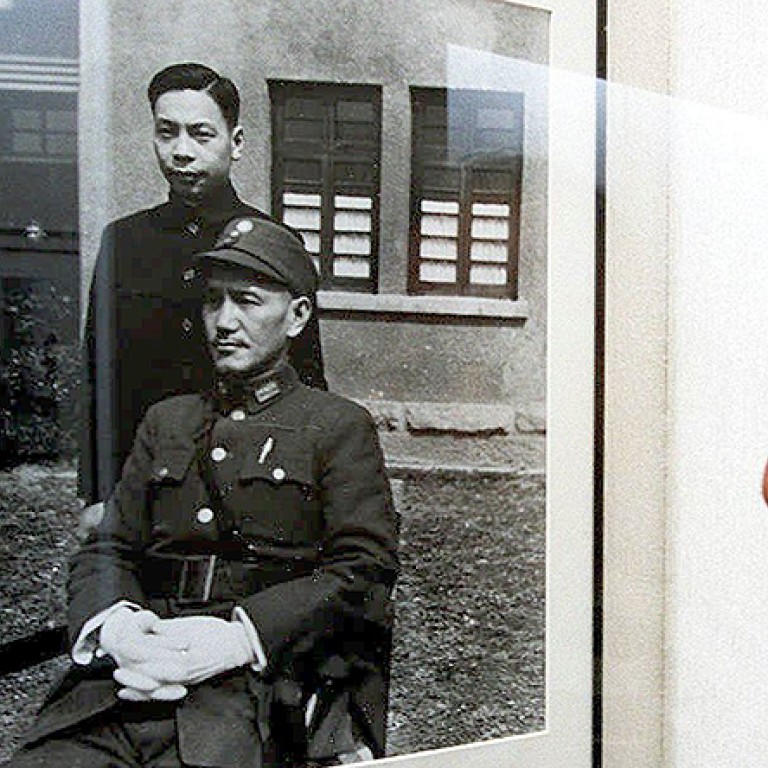
Who is the greatest Chinese leader of the past century?
Kerry Brown says the underrated Chiang Ching-kuo probably most deserves the accolade
With Xi Jinping dreaming of a Chinese renaissance and Ma Ying-jeou battling for final support for a landmark services trade deal with the mainland that might make or break his legacy, perhaps now is a good time to ask who in the Greater China area will be rated well in the decades ahead.
Who is the best leader the region has had over the past 100 years, that can set a sort of benchmark for modern leaders to emulate? Americans undertake this sort of survey of their presidents every few years. Usually, Abraham Lincoln or George Washington come top. In the UK, post war, Clement Attlee usually gets the highest marks. How about Greater China? How do we rank the leaders there?
Sun Yat-sen would be a first choice for many: founder of modern Chinese nationalism, the first real leader to articulate some sense of China's modern identity, and one of the leading forces behind the establishment of the Republican era. But Sun's main weakness would be a failure to truly deliver anything, despite his emotional appeal. President for merely a month, he was too peripatetic to rank as a great leader, and he would be too idiosyncratic to copy.
For many on the mainland, their vote would go to Mao Zedong . Winner of the civil war, ruler of China from 1949 till his death in 1976, he regarded himself on a par with the greatest leaders of the past. But historians are proving less charitable, even in China, and his legacy, however impressive, is likely to remain contentious. His signature schemes, from the Great Leap Forward to the Cultural Revolution, were marred by vast human suffering. It is likely that he will be recalled more as a dictator than a positive historic force.
Does that mean that Chiang Kai-shek needs to carry the vote? Chiang has undergone an impressive rehabilitation in recent years, internationally and on the mainland. He is regarded as the leader who led the main Chinese armies to fight against staggering odds with the Japanese and prevailed. Oxford historian Rana Mitter, in a recent book, has made a powerful case for why Chiang should get a better rating.
But Chiang's failure to win the civil war from 1946, the corruption and economic mismanagement of China under his rule, and the brutal suppression of rebellion in Taiwan in 1948 are hard to ignore. Like Mao, Chiang will be an important historical figure, but it is hard to see him being accorded the label of greatness.
This seemingly leaves Deng Xiaoping to carry the day. The architect of reform and opening up, the man who cleaned up much of the mess created by late Maoism, Deng is largely recognised today as starting the greatest economic transformation in human history. Surely these are qualifications for historic greatness? Ezra Vogel's monumental biography of Deng makes clear how significant his contribution to China and the world was.
But there are also caveats. The handling of June 4, 1989 will remain a major sticking point, and Deng's refusal to countenance true political reforms alongside economic ones may well loom as a larger failure of vision in the years ahead. Deng may well be judged as the man who had the chance to truly radically change China so it had a more sustainable system of governance, but instead banked everyone on one tactic, that of economic reform - a tactic that proved hugely successful for a few decades, but then left later leaders stuck in dreadful quandaries.
Has Greater China truly had no leaders we can accord the description "great" to? Do we really have a group of leaders who have had massive historic impact, but whose failures were often as impressive as their victories?
One man perhaps does deserve the epitaph. He is someone rarely on the top lists, but I think his achievement will be enduring and will increase in significance as the years press on. This is Chiang Ching-kuo, president of the Republic of China for a decade till his death in 1988, and son of Chiang Kai-shek. The younger Chiang's claim to the title is a simple one; he instigated and implemented the hardest reform a leader can accomplish, that of fundamental political change. He did it with barely a drop of blood, and he laid the basis for a stable system that will outlast the fierce protests in Taipei over the past few weeks.
Chiang's achievement was all the more astonishing in view of the low regard for him during his father's life. He was seen as a playboy, someone with no real ability who would be hard put to handle his father's immense legacy when he died in 1975. But Chiang Ching-kuo responded to the sort of challenges that caused unrest and bloody protests in pre-democratic South Korea with pragmatism, and also a sense of vision.
If historic figures were like companies on the stock exchange, and I was asked today where to put my money on assets that were almost certainly to rise handsomely in the years ahead, then Chiang is where I would place my bet.

